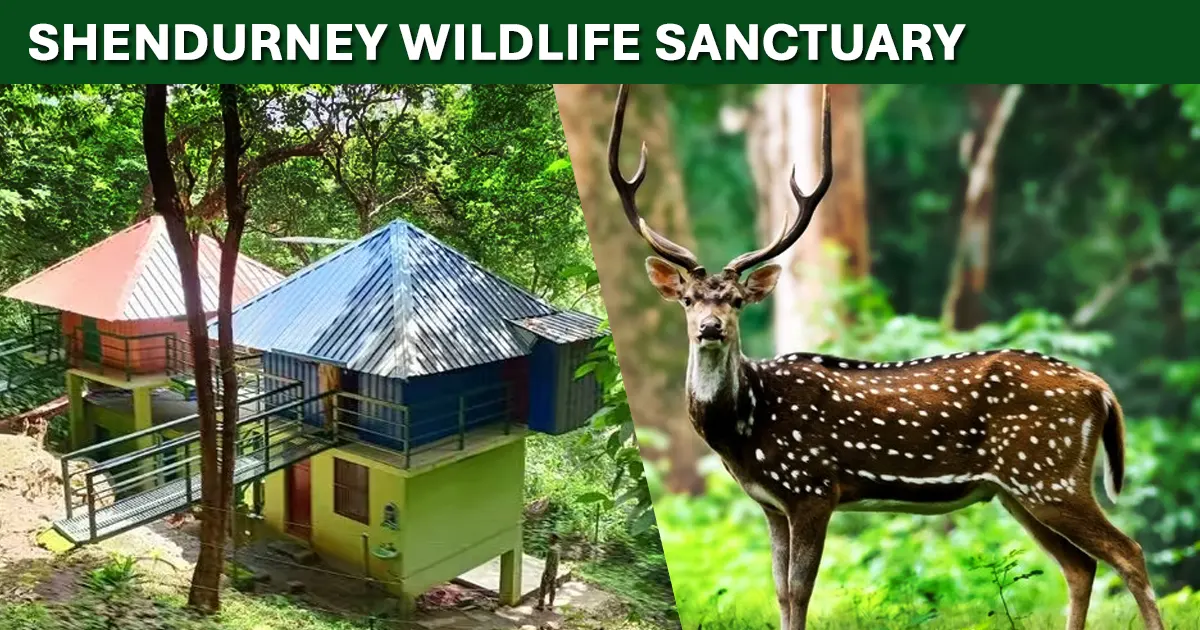GS 3 – Environment

A recent four-day faunal survey at the Shendurney Wildlife Sanctuary has provided valuable additions to the sanctuary’s biodiversity records, enhancing the understanding of its rich fauna.
About Shendurney Wildlife Sanctuary:
- Location: Situated in the southern part of the Western Ghats, in Kollam district, Kerala.
- Area: Approximately 172 sq.km., part of the larger Agasthyamala Biosphere Reserve.
- Topography: The sanctuary is primarily hilly, with ravines scattered throughout.
- Drainage System: Major rivers within the sanctuary include Shendurney, Kazhuthuruthy, and Kulathupuzha, which converge to form the Kallada River.
Flora:
The sanctuary is home to a variety of forest types:
- Tropical evergreen forests
- Semi-evergreen forests
- Moist deciduous forests
The name “Shendurney” is derived from the Gluta travancorica tree, locally called ‘Chenkurunji’, which is endemic to the region and abundant within the sanctuary.
Fauna:
- Mammals: The sanctuary houses a diverse range of mammals, including elephants, tigers, leopards, gaurs (Indian bison), sambar deer, barking deer, wild boars, and bonnet macaques.
- Endemic Species: It supports a significant population of Nilgiri langurs and lion-tailed macaques, both of which are endemic to the Western Ghats.
- Birds: Over 200 species of birds are recorded, with notable species including:
- Great Indian Hornbill
- Malabar Pied Hornbill
- Grey-headed Bulbul
- White-bellied Treepie
- Various species of woodpeckers, flycatchers, and raptors.
Shendurney Wildlife Sanctuary remains a crucial habitat for biodiversity conservation, particularly for endemic species in the Western Ghats.




